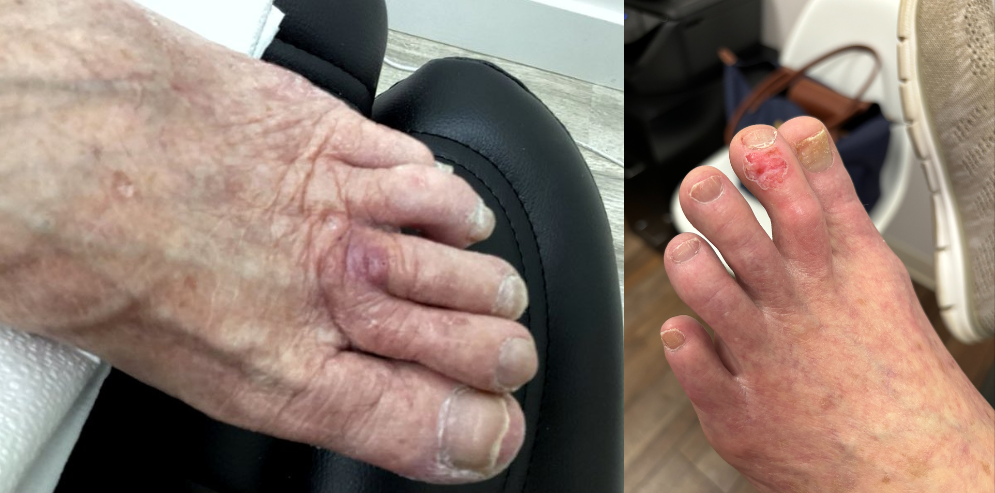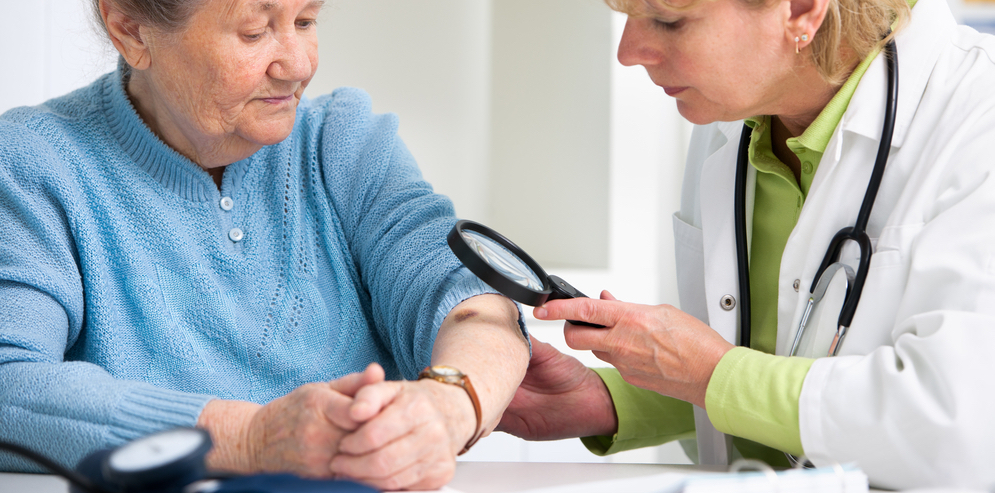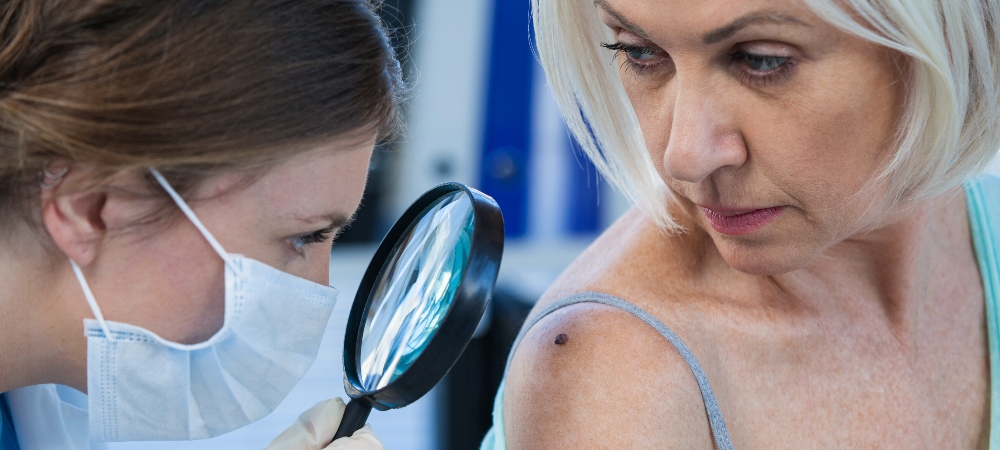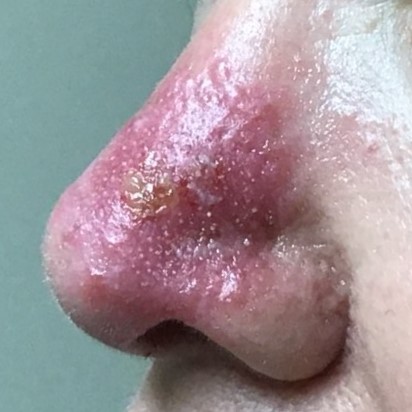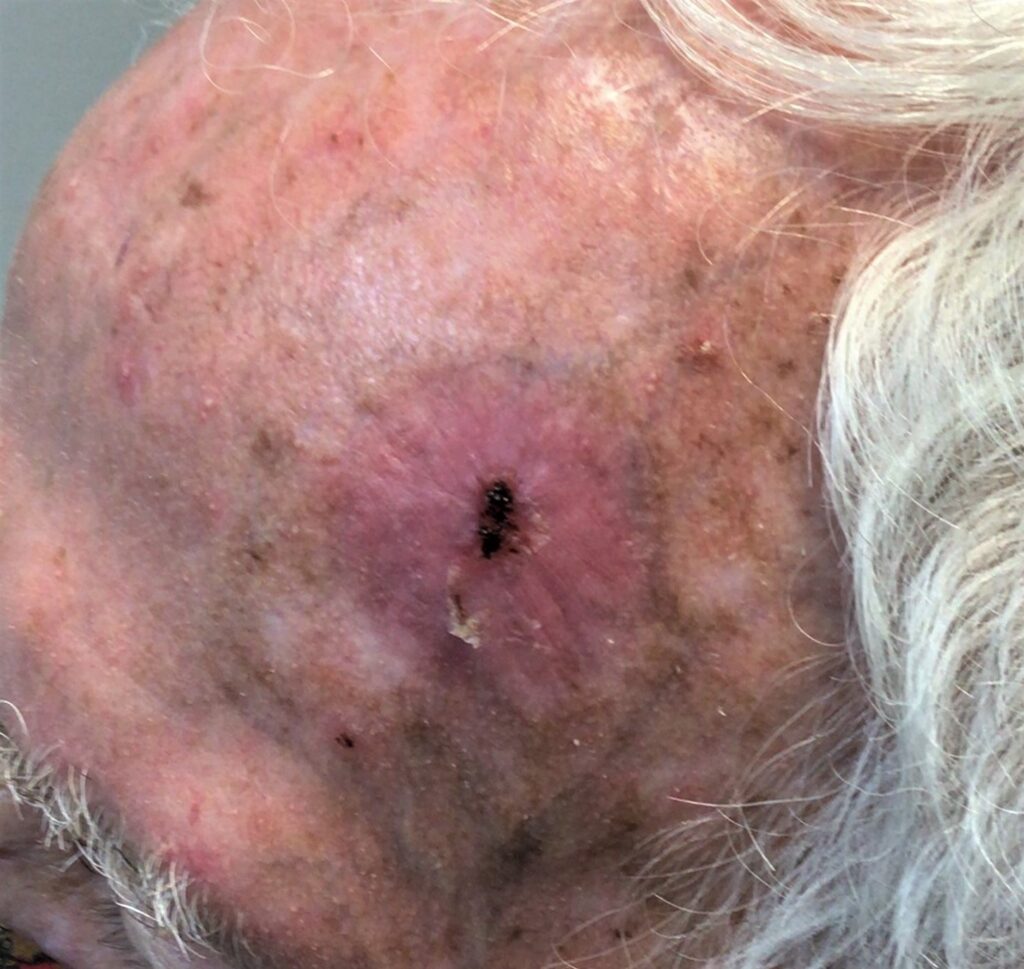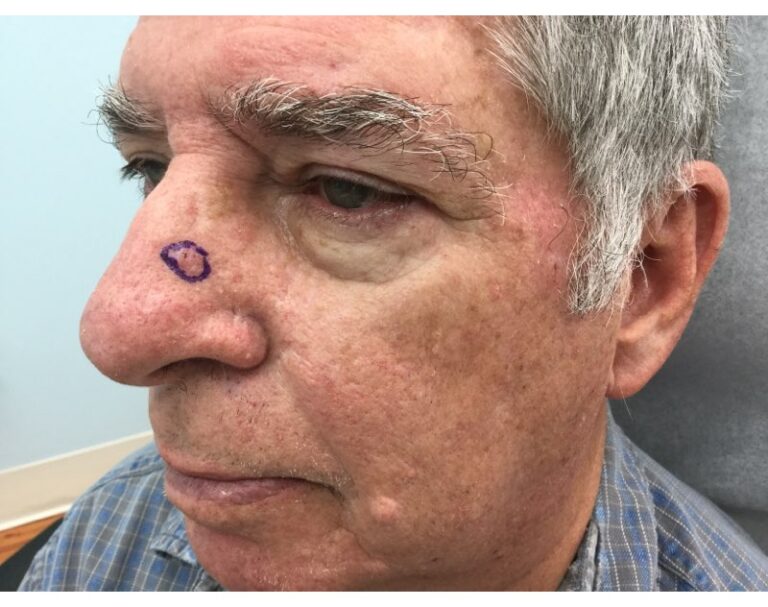
Genetics play a significant role in how our bodies function and develop, but is skin cancer hereditary? While most forms of skin cancer are caused by excessive exposure to sunlight, there are some genetic factors that can make you more susceptible to the disease. What genetic mutations produce the greatest risk of skin cancer? We’ll explore this and more with this overview.
Is Skin Cancer Hereditary?
Skin cancer is primarily caused by overexposure to sunlight or UV rays, which can cause skin cells to reproduce at an abnormal rate. The three forms of skin cancer — basal cell skin cancer, squamous cell skin cancer, and melanoma — are typically slow to develop, but each will appear as a lesion that refuses to heal.
So is skin cancer genetic? In some cases, yes, there are genetic markers that contribute to the development of skin cancer. According to the Skin Cancer Foundation, “about 10 percent of all people who are diagnosed with melanoma have a family member who has had melanoma at some point in their lifetime.”
How is Skin Cancer Inherited?
Physical characteristics also play a significant role in putting some people at higher risk for skin cancer. There are several inherited traits that make certain individual more susceptible to sunlight damage, including:
- Fair skin that freckles easily
- Light-colored hair (blonde or red)
- Light-colored eyes (blue)
These traits, along with other environmental factors, raise the chance of developing skin cancer. The best way to reduce risk in people with these appearance markers is to:
- Avoid the use of tanning beds
- Use SPF 30 or higher on a daily basis, reapplying frequently when spending time outdoors
- Avoiding direct sunlight during peak afternoon hours
- Wearing protective clothing including long-sleeved shirts, hats, and sunglasses
- Get regular skin cancer screenings with a dermatologist
What Genetic Mutations Produce the Greatest Risk of Skin Cancer?
If a close family member has been diagnosed with melanoma and you yourself have a significant number of moles on your body, you may have what’s known as FAMMM, or Familial Atypical Multiple Mole Melanoma syndrome. FAMMM increases the risk of developing melanoma by 17.3 times compared to those without the syndrome.
In addition to FAMMM, certain defective genes have been uncovered by researchers and are thought to contribute to skin cancer risk. The Skin Cancer Foundation states that “DNA changes in tumor suppressor genes, such as CBKN2A and BAP1, can increase the risk of melanoma.”
There’s a Surgery-Free Treatment for Nonmelanoma Skin Cancer
If you or someone in your family has been diagnosed with nonmelanoma skin cancer, GentleCure™ / Image-Guided SRT is a safe, effective technology that uses radiation to target the cancer without the need for surgery. Learn how it works to get started.
